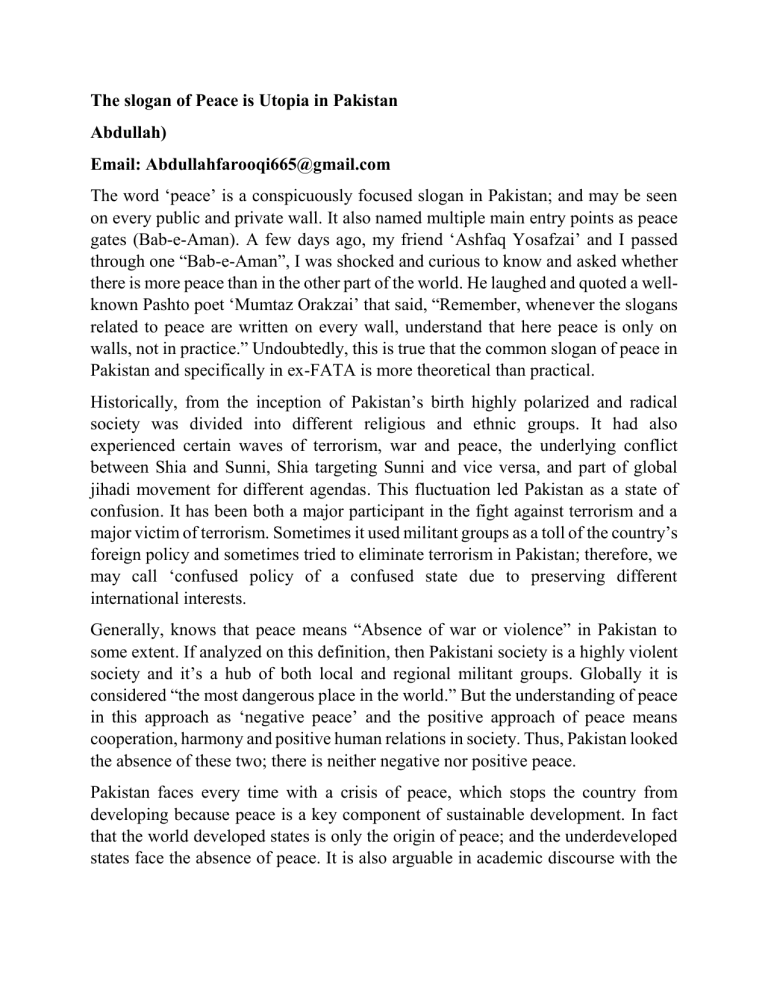
The slogan of Peace is Utopia in Pakistan Abdullah) Email: Abdullahfarooqi665@gmail.com The word ‘peace’ is a conspicuously focused slogan in Pakistan; and may be seen on every public and private wall. It also named multiple main entry points as peace gates (Bab-e-Aman). A few days ago, my friend ‘Ashfaq Yosafzai’ and I passed through one “Bab-e-Aman”, I was shocked and curious to know and asked whether there is more peace than in the other part of the world. He laughed and quoted a wellknown Pashto poet ‘Mumtaz Orakzai’ that said, “Remember, whenever the slogans related to peace are written on every wall, understand that here peace is only on walls, not in practice.” Undoubtedly, this is true that the common slogan of peace in Pakistan and specifically in ex-FATA is more theoretical than practical. Historically, from the inception of Pakistan’s birth highly polarized and radical society was divided into different religious and ethnic groups. It had also experienced certain waves of terrorism, war and peace, the underlying conflict between Shia and Sunni, Shia targeting Sunni and vice versa, and part of global jihadi movement for different agendas. This fluctuation led Pakistan as a state of confusion. It has been both a major participant in the fight against terrorism and a major victim of terrorism. Sometimes it used militant groups as a toll of the country’s foreign policy and sometimes tried to eliminate terrorism in Pakistan; therefore, we may call ‘confused policy of a confused state due to preserving different international interests. Generally, knows that peace means “Absence of war or violence” in Pakistan to some extent. If analyzed on this definition, then Pakistani society is a highly violent society and it’s a hub of both local and regional militant groups. Globally it is considered “the most dangerous place in the world.” But the understanding of peace in this approach as ‘negative peace’ and the positive approach of peace means cooperation, harmony and positive human relations in society. Thus, Pakistan looked the absence of these two; there is neither negative nor positive peace. Pakistan faces every time with a crisis of peace, which stops the country from developing because peace is a key component of sustainable development. In fact that the world developed states is only the origin of peace; and the underdeveloped states face the absence of peace. It is also arguable in academic discourse with the reference of ‘Dependency Theory’ that the center exploited the periphery and they didn’t want peace in the third world. To sum up, Pakistan and the whole third world need socialization and education. Leaders, trainers, religious scholars, and educators may have a certain amount of influence on society to make people aware of sectarianism and Religious fanaticism. Government institutions and intellectuals of the society are only the solutions to bring peace from walls to practical, from theory to practice, from utopia to reality; then it will be real peace.



